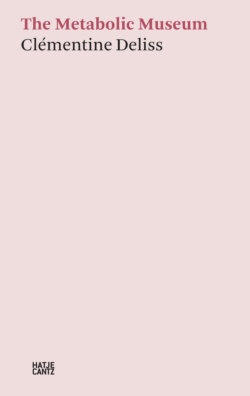Читать книгу Clémentine Deliss - Clémentine Deliss - Страница 7
На сайте Литреса книга снята с продажи.
Manifesto for the Post-Ethnographic Museum
ОглавлениеFrankfurt/New York, October 2013
Anomalous and anachronistic:
It’s about working with a collection
that belongs to another time
that belongs to other people
that is deeply connected to the histories
of European colonialism and trade
that is contested and will continue to be contested
whose potential for referentiality is far from expended
whose restitution is undeniable.
Domestic research:
It’s about working with existing architecture not against it
moving between apartments, studios, archives, and labs
finding structural solutions for the installation of artifacts
repositioning collections both conceptually and physically.
It’s about rethinking possibilities
of research inside a museum
through self-critical and recursive inquiry
slow, prone to change, not always visible
reintroducing a laboratory into the practice of a museum
developing new assemblages based on historical collections
building a workshop for the production of prototypes
constructing an exhibition out of this continuing procedure.
Remediation over time:
It’s about daring to change
the anthropological classification of the collection
suspending the logos of ethnos
and earlier organizing principles:
region, religion, ethnic group, culture, society, and function
developing alternative metaphors through dialogical research
healing a deficient situation
shifting medium, enabling interpretation.
Curating neighborhoods:
It’s about inviting artists, designers,
lawyers, writers, historians,
and anthropologists in residence
those who connect to the original source of the collection
those who come from elsewhere
rubbing shoulders through their engagement with the collection.
It’s about making rooms available to visitors
encouraging the public to usurp the museum
to shelter in it, study, and meet
taking in exhibits through the corner of one’s eye
fully deploying the educational brief of the museum
checking the open access digital studio.
The Museum-University:
It’s unequivocally collection-centered
working outward from actual exhibits
deconstructing earlier archives
and histories of ethnographic museums
introducing external impulses,
an epistemological generalism
a democratic intellect
a non-standardized education
as independent as possible
providing a new platform for professional development
connecting the next generation of global cultural protagonists
from curatorial studies, cultural studies, postcolonial studies,
contemporary art, design, performance, art history, anthropology,
creative writing, law, ecology, mathematics, and more,
breaking open the disciplines of the past and their collections.
